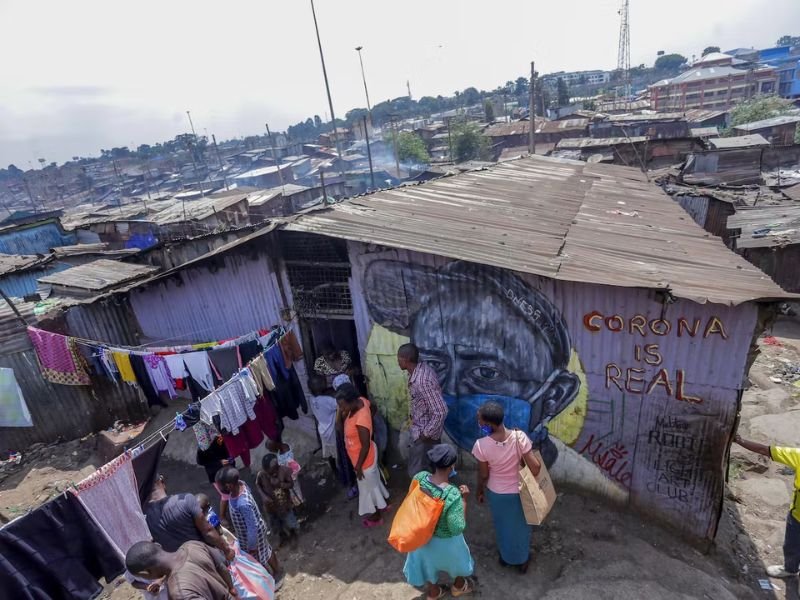Nomkhosi Mkhwanazi, 35, is sitting in her office at Hlabisa Hospital, which is named after a small rural settlement in KwaZulu-Natal about a three-hour drive north of Durban.
She’s the only dietitian at the hospital.
Mkhwanazi grew up in Hlabisa and has lived there for the majority of her life.
Since 1999, the Umthombo Youth Development Foundation has assisted around 500 health workers in studying health science. Students from poor, rural backgrounds, like Mkhwanazi, are funded and mentored during their studies.
In exchange, they must work at hospitals in (or near) the towns or villages where they grew up for the same number of years that the foundation supported them.
Mkhwanazi was required by contract to work in the Hlabisa area for four years, but she has stayed much longer. She will have worked here for nine years this month.
Her desire to help people in her community is, in fact, what inspired her to become a dietitian in the first place.
“I’ve always wanted to come back here and work,” Mkhwanazi says. “I was a student nurse here at the hospital before becoming a dietitian.” I noticed that many patients did not gain weight as a result of their illnesses or financial difficulties.”
Dietitians advise such patients on what foods to eat based on scientific evidence. “If patients are too sick to eat, dietitians will prescribe nutritional supplements,” Mkhwanazi adds.
If Mkhwanazi’s patients lived in cities like Cape Town or Durban, they would have had access to a variety of dietitians at public hospitals.
But things are different in Hlabisa.
“Until I started working here in 2013, there wasn’t a single permanent dietitian at the hospital,” Mkhwanazi says. “So I decided to study dietetics and then return to my community to serve.”
Doctors who were raised in rural areas are more likely to work there.
Mkhwanazi’s story explains why Umthombo was framed.
People who grew up in rural towns are far more likely than their urban counterparts to work in desperately needed rural clinics and hospitals.
A 2019 study of Wits University medical students found that five years after graduation, doctors raised in rural areas were nearly five times more likely to be working in rural hospitals than those raised in cities.
Other South African medical schools’ research has yielded similar results.
So what about Umthombo’s own information?
According to a 2015 study, nearly 95% of the 185 health science students who graduated by 2013 either fulfilled their contracts and worked back the entire period they were supported for at a rural health centre, or were in the process of doing so. And, of those who had completed their obligations, 71% continued to work in these fields.
The graduates of the foundation bring skills that rural hospitals and clinics struggle to attract or retain, according to a 2021 study published in BMC Health Services Research.
According to a 2011 health department report, only 3% of the 1200 medical students who graduated each year ended up working in rural areas 10 to 20 years later. There is no new health department data, but a 2019 study of doctors who graduated from Wits between 2007 and 2011 discovered that only 7% worked in rural areas.
This contributes to a significant disparity in how easily people in remote areas can access healthcare compared to those in the country’s major cities.
But why do people who grew up in rural areas and now have the means to live anywhere in South Africa (or even emigrate) choose to work in small South African settlements, often in under-resourced facilities?
Anecdotally, Bhekisisa visited three hospitals in rural KwaZulu-Natal where Umthombo graduates currently work. We spoke with ten of them, all of whom grew up in these neighbourhoods.
We also spoke with six Umthombo-supported medical students from deep rural communities at the University of KwaZulu-Natal about their plans to return.

Family and finances: The advantages of living in the country
Many of the students and health workers Bhekisisa spoke with agreed with Mkwhanazi’s motivation for returning to rural work.
Knowing how poor their communities are in terms of health care is a big part of what drives them home.
Mthokozisi Gumede, a social worker at Bethesda Hospital in Ubombo, a small village about a four-hour drive from Durban, says it gives him great satisfaction to serve people he grew up with.
Thulani Ngwenya had a similar concern after qualifying as a doctor and starting work in rural KwaZulu-Natal in 2013. Serving people in uMkhanyakude, the district municipality where he grew up and now works, was always important to him.
But he wanted to get away from his hometown of Ingwavuma, a rural village near the province’s northwestern tip, where it borders Eswatini. Ngwenya is now the medical manager at Bethesda Hospital, which is about 80 kilometres from Ingwavuma.
“A mother or grandmother in my culture would not feel comfortable being examined by someone they saw growing up,” he explains.
Ngwenya, smiling, says he’ll return to his childhood village in due course: “I just need the community to forget about me running naked in front of them as a child.” Hopefully, they’ll be able to be naked in front of me.”
Don’t forget to follow us on Facebook | Instagram | Twitter | LinkedIn to get the latest updates from Cape Town Tribune









